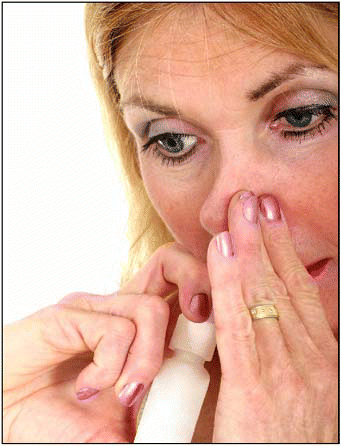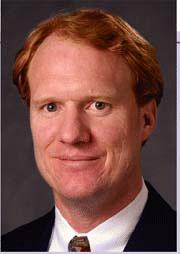A recent study adds to the growing body of evidence showing that antibiotics are overused in the United States—this time for rhinosinusitis, which affects about 20% of the US population. The prospective, four-year study found that US physicians prescribed antibiotics for nearly 83% of acute sinus infections—even though acute sinus infections are most likely of viral origin rather than bacterial causes, and antibiotics are ineffective against viruses.
“Patients tend to feel better on antibiotics and many times antibiotics are the only drugs we have to offer. They often pressure doctors to prescribe antibiotics, probably as a result of direct-to-consumer ads. If their doctor doesn’t give them a prescription, they may consult another one,” explained Donald Leopold, MD, Professor and Chairman of the Department of Otolaryngology–Head and Neck Surgery at University of Nebraska Medical Center in Omaha, and senior author of the study. “It is astonishing that one in five antibiotics are prescribed for adults with rhinosinusitis,” he added.
Rhinosinusitis is one of the most expensive disorders in the United States, he continued, and accounts for 9% of prescriptions for antibiotics in children and 21% in adults. Rhinosinusitis also compromises quality of life, and treatment is often inconsistent among providers. This may be partly because it can be difficult to determine whether the infection is bacterial or viral in origin and because there is a lack of consensus on treatment algorithms.
Dr. Leopold said that watchful waiting, saline irrigation, and use of a decongestant or appropriate antimicrobial agent are the preferred treatments.
Two Large Surveys
The study was based on two large surveys: the National Ambulatory Medical Care Survey and the National Hospital Ambulatory Medical Care Survey collected by the National Center for Health Statistics. Only visits that resulted in a primary diagnosis of chronic (>12 weeks duration) or acute (<4 weeks duration) rhinosinusitis were included in the analysis. The authors estimated that from 1999 through 2002, more than 14 million visits per year were for chronic rhinosinusitis and more than 3 million were for acute rhinosinusitis, representing 1.39% and 0.30%, respectively, of all visits for ambulatory care.
Antibiotics were the most frequently recommended medications for both chronic and acute rhinosinusitis, followed by antihistamines, nasal decongestants, corticosteroids, and antitussive, expectorant, and mucolytic agents, respectively. Penicillins (i.e., amoxicillin or amoxicillin-clavulanate potassium) were the most frequently used antibiotic medications.
Reasons for Overuse/Overprescribing
In addition to pressure from patients for a prescription, Dr. Leopold said that doctors might be prescribing antibiotics “out of frustration” because there are no effective prescription drugs for chronic rhinosinusitis that have acceptable side effects. Also, he noted that the symptoms of acute and chronic rhinosinusitis are identical and include mucus, pressure, and impaired sense of smell. “Physicians are never quite sure if a patient with chronic rhinosinusitis doesn’t also have acute infection,” he noted.
Resistance and increasingly virulent bacteria are a public health concern related to overuse or inappropriate use of antibiotics. Dr. Leopold explained that antibiotics are not risk-free. Some patients can develop intrinsic resistance to an antibiotic, allergic reaction can occur, and, in rare instances, antibiotics can cause a life-threatening systemic reaction.

Overuse and inappropriate prescribing of antibiotics are especially disturbing to Dr. Leopold because there are better alternatives. His preference is saline irrigation, which is simple to use and inexpensive. Saline irrigation provides relief of symptoms, reduces inflammation, rids nasal passages of stagnant mucus, and irrigates the nasal passages, reducing the likelihood of the development of opportunistic infections. Saline lavage comes with a squeeze bottle and can be purchased over the counter. Typically a patient will use it once or twice a day, squeezing the contents of the bottle gently up the nostril.
“Saline lavage is my treatment of choice, and I would suggest it for acute symptoms, bacterial or viral,” he commented.
Several new drugs under development to treat chronic rhinosinusitis are targeted to the inflammatory component, and some of these hold promise, Dr. Leopold said. “These new drugs are a bright hope for the many patients who suffer from this condition,” he said.
Educate Physicians
Dr. Leopold feels hopeful that the message from his study and other studies will reach primary care physicians, and that they will become aware that saline irrigation is an effective option for rhinosinusitus symptoms. But saline irrigation is not a “sexy” product that is being promoted by a large pharmaceutical company, so it will take time for the message to filter down into the community.
“There will be no large studies and no commercial promotion of that product,” Dr. Leopold said.
Educating patients is even harder, because the US health care system leaves little time for physicians to spend with patients. Discussing the benefits of saline irrigation takes more time than prescribing antibiotics, Dr. Leopold noted. “If you discuss saline irrigation with patients, it may keep them from consulting a doctor next time they have symptoms. They will be able to treat them themselves using this simple inexpensive treatment,” he said.
Global Problem
Misuse of antibiotics is a global problem, stated Michael Benninger, MD, Chairman of the Department of Otolaryngology/Head and Neck Surgery at Henry Ford Hospital in Detroit. Overuse of antibiotics is the major cause of resistance in the United States, as well as in other countries such as Japan, and Korea. However, in Scandinavia, where antibiotics are used more sparingly, resistance is a much less major problem, he explained.
Regarding overuse of antibiotics for sinus infections, Dr. Benninger said, “We are stuck. Patients demand a treatment for a self-limiting problem, like a cold with runny nose and cough. They are convinced that antibiotics make them better quicker, and they are angry when they don’t get antibiotics.”
If a cold lasts longer than seven to 10 days, the cause is more likely to be bacterial than viral—but this is true in only 60% of cases, he continued.
“Chronic rhinosinusitis is a different ballgame from acute rhinosinusitis,” he said. “There is no evidence that antibiotics are effective for chronic rhinosinusitis, which has multiple causes, some of which we don’t understand. The best treatment is anti-inflammatory medications, such as intranasal or systemic steroids [for which there is no FDA approval] and repetitive irrigation for symptom relief,” Dr. Benninger said. In selected patients, there is some evidence that low (subtherapeutic) doses of macrolides, “which are not very good antibiotics,” may be helpful in chronic inflammatory sinusitis, he continued, because of an anti-inflammatory, not a true antibiotic, effect.
Emergency room doctors and family physicians are usually pressed for time and when confronted with patients who demand a drug, they prescribe an antibiotic, thinking it can do no harm. Patients with sinusitis may be more likely to heed the advice of an otolaryngologist, Dr. Benninger noted.
“If a patient comes in with a cold of four or five days’ duration, I tell him or her that statistics show that it is exceedingly unlikely that the infection is bacterial. I tell them I can obtain a culture, which takes two days, and I also tell them that if there is no improvement on day 7 or 8, to call the office for a prescription for an antibiotic,” he said.
©2007 The Triological Society


Leave a Reply